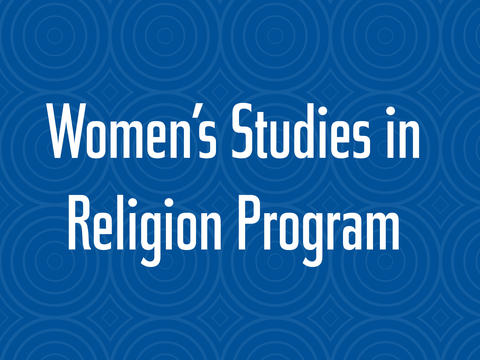WSRP Announces 2023–24 Research Associates

Five new Research Associates will join the Women’s Studies in Religion Program at HDS to work on book-length projects during the 2023–24 academic year. By bringing together scholars from different disciplines and research areas, commonalities in religion and gender emerge.
While working on their projects, the WSRP Research Associates teach a one-semester course and deliver a lecture on their research.
Jessica J. Fowler
Visiting Associate Professor of Women’s Studies and Catholicism
Project title: Illuminating the Empire: The Spanish Inquisition and the Spread of Global Heresy, 1500-1700
A trans-imperial study encompassing three continents, two centuries, and approximately four hundred cases, that illustrates how the Spanish Inquisition created a heresy and then set in motion a circumambulatory logic that fabricated heretical sects, led by women, out of inquisitorial fears and anxieties about women and their religiosity.

Elena Herminia Guzman
Visiting Assistant Professor of Women’s Studies and African Diaspora Studies
Project title: Chimera Geographies: Black Spiritual Borderland Performances of the Caribbean
This project explores the way Black women and non-binary people through the Caribbean and its diaspora use spiritual and ritual performance within African Diasporic Religions, including Santeria, Haitian Vodou, Puerto Rican Espiritismo, 21 Divisions, and Obeah, as a means to forge interstitial geographies of the African diaspora.

Samira K. Mehta
Visiting Associate Professor of Women’s Studies and North American Religions
Colorado Scholar
Project title: God Bless the Pill: Contraception and Sexuality in Tri-Faith America
This project traces the intertwined history of religion and contraception in the United States from the founding of Planned Parenthood’s first Clergy Committee in 1942 to the present. It draws from medical, feminist, legal, and political histories of contraception to demonstrate that whatever else these debates may have been about, they were, fundamentally, about religion.

S. Zahra Moballegh
Visiting Assistant Professor of Women’s Studies and Islam
Project title: Narrating for Love and Change: Reading Women’s Stories in Search of a Feminist Qur’anic Narrator
There are about 25 stories in the Qur’an in which one or more women have a role. A linguistic-narratological study of these stories supports new feminist approaches to the Qur’an by shedding light on the meaning of femininity from the Qur’anic God’s point of view. This study also considers some repeated phenomena in the narrating style of the Qur’anic stories which reveal new features about the Qur’anic narrator.

Z. Fareen Parvez
Project title: Women, Trauma, and the Islamic Sciences of Healing: A Case Study of Jinn Possession in Morocco
The project examines the global revival and state suppression of the “Islamic sciences of healing” through a qualitative case study based in Morocco. It explores how women become central to debates about Islamic reform and how possession becomes a site to manage gender relations and trauma.

Ashley M. Purpura
Visiting Associate Professor of Women’s Studies and Theology
Project title: Liberating Orthodoxy: Feminism, Faith, and Divine Otherness
This monograph argues Orthodox Christianity can be reframed to liberate tradition from its own patriarchal constraints by privileging continuity with incarnation, resurrection, and theosis. Rereading historical theology and present practices through the lens of a uniquely Orthodox feminist theological critique, I show participation in divine otherness necessitates women’s freedom.
